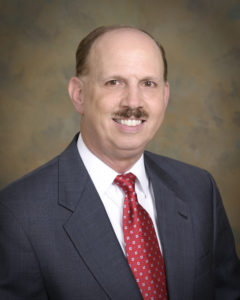Florida Governor Signs New Controlled Substance Telemedicine Prescribing Law

On April 6, 2022, Florida’s Governor signed into law legislation to remove the state’s prior restrictions on telemedicine prescribing of controlled substances. The new law in Florida allows healthcare providers to prescribe many controlled substances via telemedicine.
Florida Senate Bill (SB) 312, signed into law, eliminates the prior ban that had existed prohibiting the prescription of Schedule II controlled drugs (with certain exceptions). Schedule II drugs can now be prescribed in Florida via telemedicine if the clinical situation meets one of four exceptions.
A Big Win For Patients Whose Treatment Requires Controlled Substances.
The prescribing of controlled substances is a heavily regulated medical service. Healthcare providers must usually meet specific criteria to prescribe controlled substances via telemedicine, including conducting an in-person examination of the patient before moving to telehealth examinations.
The new law will allow Florida clinicians to prescribe refills in connection with their ongoing care management more efficiently. For example, the clinician can periodically conduct patient examinations via telemedicine instead of requiring in-person exams.
SB312 was seen to be a big win for Florida patients with medical conditions requiring controlled substances as part of the treatment regimen. This includes, for example, endocrinology or substance use disorder (both of which use Schedule III medications now permitted under the new law), allowing these patients to obtain better access to more care. This is especially so for patients whose medical conditions may have limited their travel or mobility.
The allowance is limited for Schedule II drugs. It is now allowed but only for the treatment of psychiatric disorders, inpatient treatment at a licensed hospital, hospice services, and treatment for residents in a nursing home.
The Florida Law Doesn’t Supersede Federal Law.
It is important to remember that Florida law doesn’t supersede federal law. Therefore, providers should be certain that they meet the requirements of both federal and state law.
In this context, the telemedicine prescribing of controlled substances is governed by the federal Ryan Haight Act, as well. This means prescribers still need to meet one of seven conditions that would allow them to prescribe a controlled substance via telemedicine without first having an in-person exam. Florida law must be read in harmony with the federal Ryan Haight Act requirements and a prescriber must comply with both.
Learn more about the Ryan Haight Act and the federal requirements.
To view SB312 in full, click here.
Contact Health Law Attorneys Experienced in Handling Medicare Audits, Investigations and other Legal Proceedings.
The attorneys of The Health Law Firm represent healthcare providers in defending audits and investigations by the Department of Health and Human Services, the Department of Justice, The Drug Enforcement Administration (DEA), the Florida Department of Health (DOH), the Colorado Department of Regulatory Agencies, Medicaid Fraud Control Unit (MFCU), state boards of medicine, state boards of pharmacy, and state boards of nursing. They also represent health professionals and providers in administrative litigation (state and federal) and civil litigation (state and federal). They represent physicians, nurses, medical groups, nursing homes, home health agencies, pharmacies, dentists, pharmacies, assisted living facilities, and other healthcare providers and institutions in recovery actions and termination from Medicare and Medicaid Programs.
To contact The Health Law Firm please call (407) 331-6620 or (888) 331-6620 and visit our website at www.TheHealthLawFirm.com.
Sources:
Wicklund, Erik. “NEW FLORIDA LAW OKS PRESCRIBING MOST CONTROLLED SUBSTANCES BY TELEMEDICINE.” Healthleaders Media. (April 11, 2022).Web.
“New Florida Law Allows Telemedicine Prescribing of Controlled Substances.” National Law Review.” (April 7, 2022). Web.
Lacktman, Nathaniel. “New Florida Law Allows Telemedicine Prescribing of Controlled Substances.” Foley & Lardner. (April 7, 2022). Web.
About the Author: George F. Indest III, J.D., M.P.A., LL.M., is Board Certified by The Florida Bar in Health Law. He is the President and Managing Partner of The Health Law Firm, which has a national practice. Its main office is in the Orlando, Florida area. www.TheHealthLawFirm.com The Health Law Firm, 1101 Douglas Ave. Suite 1000, Altamonte Springs, FL 32714, Phone: (407) 331-6620 or Toll-Free: (888) 331-6620.
“The Health Law Firm” is a registered fictitious business name of and a registered service mark of The Health Law Firm, P.A., a Florida professional service corporation, since 1999.
Copyright © 2022 The Health Law Firm. All rights reserved.


 By George F. Indest III, J.D., M.P.A., LL.M., Board Certified by The Florida Bar in Health Law
By George F. Indest III, J.D., M.P.A., LL.M., Board Certified by The Florida Bar in Health Law

 By George F. Indest III, J.D., M.P.A., LL.M. Board Certified by The Florida Bar in Health Law
By George F. Indest III, J.D., M.P.A., LL.M. Board Certified by The Florida Bar in Health Law